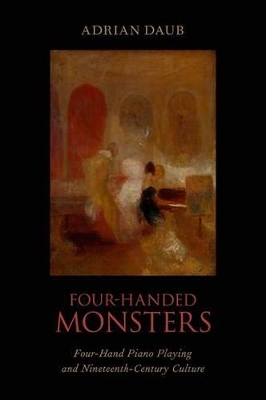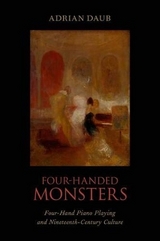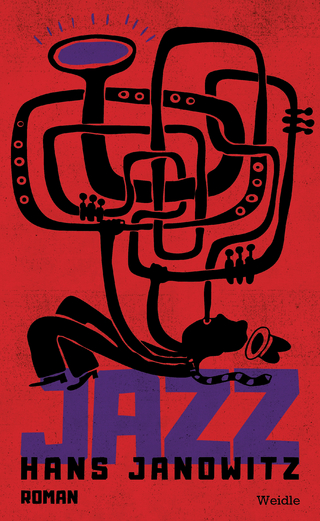Four-Handed Monsters
Oxford University Press Inc (Verlag)
978-0-19-998177-9 (ISBN)
Four-hand piano playing was often understood as a socially acceptable way of flirting, a flurry of hands that made touching, often of men and women, not just acceptable but necessary. But it also became something far more serious than that, a central institution of the home, mediating between inside and outside, family and society, labor and leisure, nature and nurture. And writers, composers, musicians, philosophers, journalists, pamphleteers and painters took note: in the art, literature and philosophy of the age, four-hand playing emerged as a common motif, something that allowed them to interrogate the very nature of the self, the family, the community and the state. In the four hands rushing up and down the same keyboard the nineteenth century espied, or thought espy, an astonishing array of things. Four-Handed Monsters tells the story of that practice, but also the story of the astonishing array of things the nineteenth century read into it.
Adrian Daub is Associate Professor of German Studies at Stanford University, where he works on the intersection between literature, music and philosophy in the long nineteenth century. He is the author of Uncivil Unions: The Metaphysics of Marriage in German Idealism and Romanticism (2012) and Tristan's Shadow: Sexuality and the Total Work of Art after Wagner (2013).
Acknowledgements ; Introduction ; Chapter 1: The Sonic Hearth and the "Piano Plague" ; Chapter 2: Four-Hand Piano Playing between Parlor Music and the Culture Industry ; Chapter 3: "At Best an Intruder, at Worst a Voyeur": Four-Hand Piano Playing and the Family Unit ; Chapter 4: Four-Handed Monsters ; Chapter 5: The Semantics of the Hand ; Chapter 6: Fordist Chords ; Chapter 7: Musical Platonism: Four-Hand Playing Among the Philosophers ; Chapter 8: Kakanian Variations-Four Hands and the Passing of the Nineteenth Century ; Index
| Erscheint lt. Verlag | 1.7.2014 |
|---|---|
| Verlagsort | New York |
| Sprache | englisch |
| Maße | 155 x 236 mm |
| Gewicht | 476 g |
| Themenwelt | Kunst / Musik / Theater ► Musik ► Instrumentenkunde |
| Kunst / Musik / Theater ► Musik ► Klassik / Oper / Musical | |
| Kunst / Musik / Theater ► Musik ► Musiktheorie / Musiklehre | |
| ISBN-10 | 0-19-998177-9 / 0199981779 |
| ISBN-13 | 978-0-19-998177-9 / 9780199981779 |
| Zustand | Neuware |
| Informationen gemäß Produktsicherheitsverordnung (GPSR) | |
| Haben Sie eine Frage zum Produkt? |
aus dem Bereich




